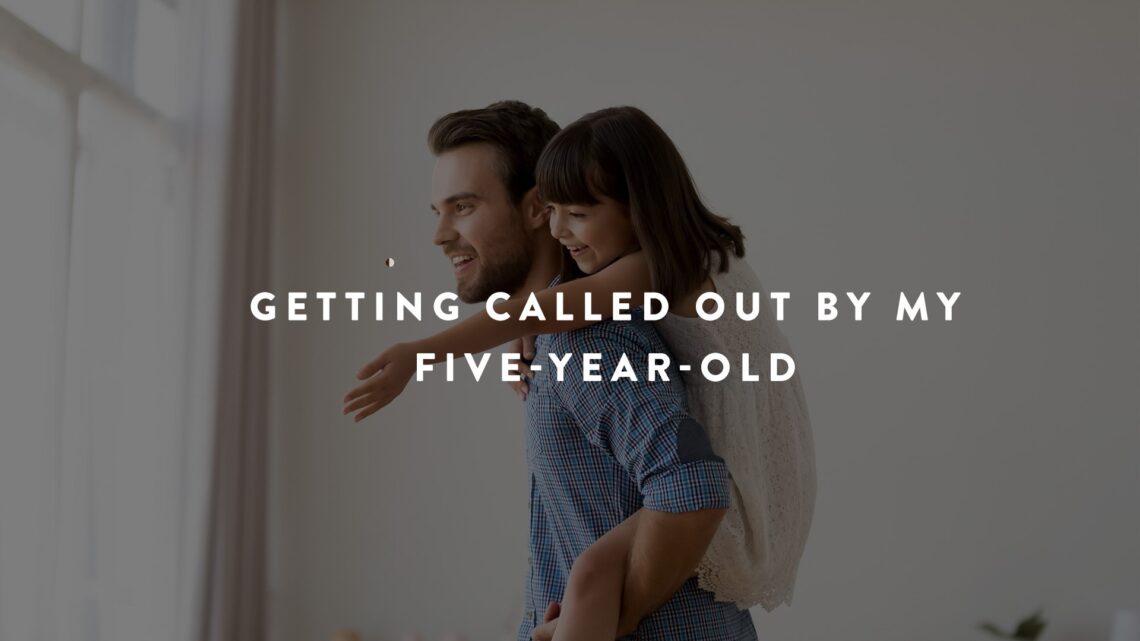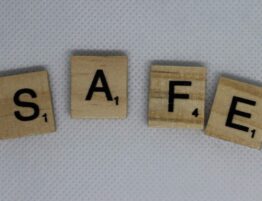
It was daddy-daughter date night, and I had crafted the perfect plan. Elle and I would eat chocolate-chip pancakes to our heart’s content, rent any movie she wanted, and stay up as late as our sugar-laden bodies would allow us. I even found a stack of ice breaker cards, each with a fun question we could ask one another. What better way to connect one-on-one with my little girl than having great conversations, right? Not so fast.
Both my pride and my plan suffered a crushing blow when Elle flipped over a card and in her adorable broken English read aloud, “What word or phrase do you think you say the most?” Her big brown eyes shot to the ceiling. She crinkled that cute button-nose and sweetly exclaimed, “That’s easy! You always yell, “BE QUIET!”
Wait, what? I couldn’t believe that was the first phrase that came to her 5-year-old mind. Not “I love you”. Not “I’m proud of you”. But “Be quiet.” My heart immediately broke at the thought of my little girl thinking of me as someone who frequently silenced her in frustration. I did my best to play off my discomfort and continue playing along, but I couldn’t shake it.
Cue the self-condemnation.
My mind wandered to my childhood. I came from a family of yellers. Growing up, I’d never seen or experienced healthy expressions of anger. My mind wandered to my performance as a father, illuminating every memory that validated my daughter’s words. The moments I brought work home with me. The moments I lost my temper. The moments I uttered words I couldn’t take back. Yes, I have raised my voice at my kids more times than I would like to admit. And the shame that ensues can be debilitating.
My mind wandered to the day I came across a Facebook post by a friend who went on about how much she admired her husband for not ever once raising his voice at his children in all their parenting years. I’d taught parenting classes encouraging parents not to compare their lives with their friend’s highlight reels on social media, but here I was doing the same thing—convincing myself that I was a fraud.
The truth is we will all mess up as parents. But when we do, is it actually possible to apologize and ask for forgiveness without launching an extensive assault on our own character?
As a parent, no one can quite prepare you for the number of times you will be unkind to yourself. How often you will be tempted to find your identity in your failures. These moments might come as a result of something you heard another parent say or perhaps from the lips of your own child. Sometimes you will be your own kryptonite. You will label yourself as weak, angry, irresponsible, too strict, too lenient and so on. But it isn’t the truth.
You may struggle with a hang-up, but the truth is you are still a new creation.
You may have made a mistake, but the truth is you are fully forgiven by God.
You may have found yourself feeling empty, but the truth is you are complete in Him.
Like a splinter, a hurtful habit can get stuck in us, but it is not a permanent appendage. It’s not who we are.
As painful as it may have been, that night changed me as a father. I became determined to re-write my story and would not be remembered by my daughters as an angry dad. But more needed to happen than just changed behavior. I needed to take what’s actually true about me to heart. And the truth is that though choosing anger over dependence on God is not okay, it doesn’t define who I am.
Parenting is hard. We’re entrusted with nurturing these little humans toward adulthood, all while engaging in what seems like an apocalyptic battle with our identities. Choosing to respond to lies with the truth has the potential to impact not only our parenting but even transform the way our kids will see themselves one day.
So the next time a hurtful habit is exposed (even by our five-year-olds), let’s wrestle with it honestly, but always in light of the truth. We are free from condemnation—including our own.





